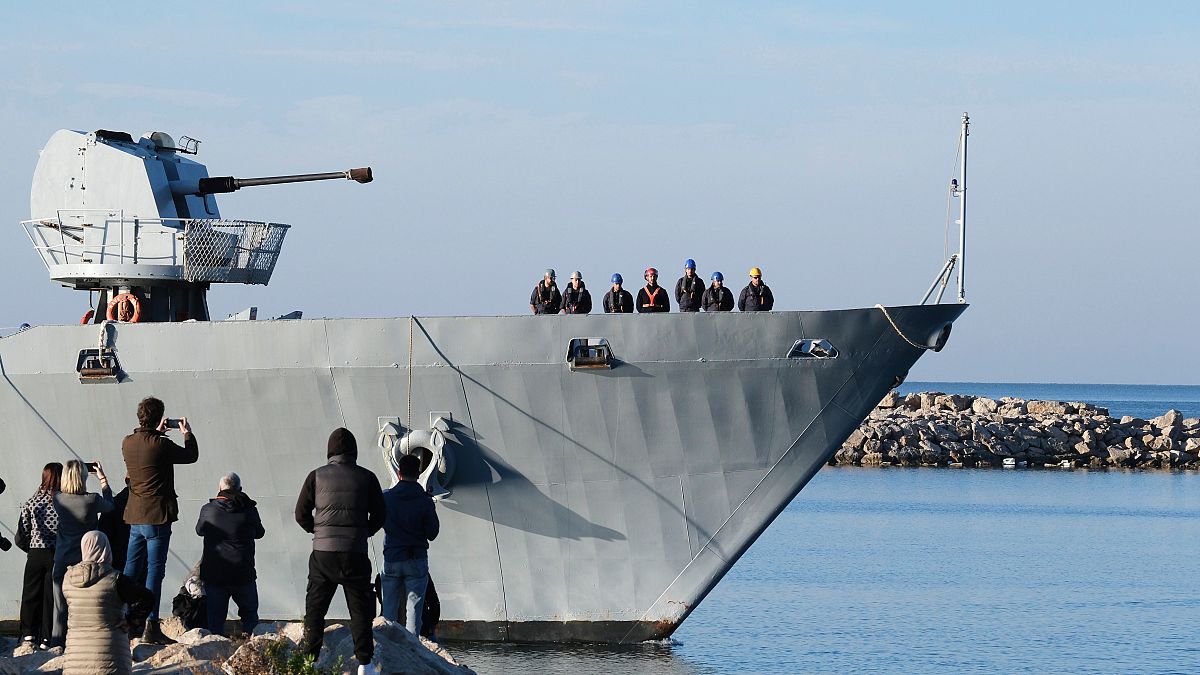In recent news, a group of 12 migrants from Bangladesh and Egypt were returned to Italy after a Rome court ruled that their countries of origin were not safe enough for repatriation. This decision came after a previous group of migrants was denied entry into Albania following a failed vetting process. The Italian navy ship carrying the migrants docked at the Albanian port of Shengjin and they will undergo asylum processing before being transferred to the repatriation center in Gjader. This marks only the second transfer of migrants since two migrant processing centers began operating in October.
The Italian navy ship had previously transferred 16 migrants from Bangladesh and Egypt to Albania, with four of them being minors or individuals with health issues who were taken back to Italy the same day. Twelve others were brought back three days later due to a ruling by Rome judges who deemed their countries of origin unsafe for repatriation. This court ruling has shortened the list of countries considered “safe” by law, making it more challenging for Rome to repatriate migrants who did not win asylum through a fast-track procedure. Italian Premier Giorgia Meloni criticized the decision, stating that deeming countries such as Bangladesh and Egypt unsafe would essentially bar all migrants from the Albania program, rendering it unworkable.
The number of migrants reaching Italy along the central Mediterranean migration route, primarily from Bangladesh, Syria, Tunisia, and Egypt, has decreased by 60% in 2024 compared to the previous year. According to the Italian Interior Ministry, as of November 7th, 57,767 migrants have arrived by sea in 2024. These figures highlight the ongoing challenges surrounding migration in the region and the complexities of repatriating individuals from countries deemed unsafe by the Italian courts. As the situation continues to evolve, it remains important to address the needs and rights of migrants while ensuring the safety and security of all individuals involved.
The recent transfer of migrants from Italy to Albania underscores the growing concerns surrounding migration policies and procedures in the region. With a significant decrease in the number of migrants arriving in Italy through the central Mediterranean migration route, the focus has shifted towards repatriation processes and asylum procedures. The court ruling in Rome emphasizing the unsafe conditions in countries such as Bangladesh and Egypt has raised questions about the effectiveness of current repatriation programs and the implications for migrants seeking asylum.
Italian Premier Giorgia Meloni’s criticism of the court decision reflects broader concerns about the challenges of managing migration flows and ensuring the safety and well-being of all individuals involved. As the number of migrants arriving in Italy continues to fluctuate, it is essential to address the underlying factors driving migration and to develop comprehensive strategies that prioritize human rights and international cooperation. This situation highlights the ongoing need for global solidarity and coordinated efforts to address the complex issues surrounding migration and displacement.
As the situation continues to evolve, it is crucial for policymakers, international organizations, and local authorities to work together to develop sustainable solutions that uphold the rights and dignity of migrants while ensuring the security and well-being of host communities. By addressing the root causes of migration, promoting safe and legal pathways for migration, and enhancing cooperation between countries, we can create a more inclusive and sustainable approach to managing migration flows in the Mediterranean region and beyond. The recent developments in Italy and Albania serve as a reminder of the urgency of addressing these challenges and working towards a more equitable and compassionate response to the complex issues of migration and displacement.










